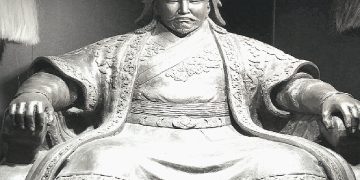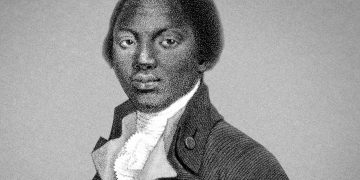Niccolò Machiavelli: The Political Strategist Ahead of His Time
Niccolò Machiavelli, an Italian Renaissance political philosopher and writer, is widely regarded as one of the most influential figures in political thought. Born on May 3, 1469, in Florence, Italy, Machiavelli’s ideas on power, politics, and governance continue to shape our understanding of the complexities of leadership.
Niccolò Machiavelli early life was deeply intertwined with the political landscape of Italy. He grew up in a time of political turmoil, where city-states vied for power and control. This environment undoubtedly had a profound impact on his later works.
After completing his education, Machiavelli began his career as a public servant in the Florentine Republic. He held various diplomatic and administrative positions, which allowed him to observe firsthand the inner workings of political power. These experiences served as the foundation for his later writings.
In 1513, Niccolò Machiavelli published his most famous work, “The Prince.” The book, dedicated to Lorenzo de’ Medici, aimed to provide practical advice on political leadership. Machiavelli’s observations and insights were based on his understanding of human nature and the dynamics of power.
“The Prince” is known for its controversial and often misunderstood teachings. Machiavelli argued that a ruler should be willing to use any means necessary to maintain power and achieve their goals. He emphasized the importance of cunning, manipulation, and even cruelty to maintain control in a world filled with political intrigue and rival factions.
Contrary to popular belief, Machiavelli did not advocate for amoral or unethical behavior. Instead, he believed that a ruler should prioritize the stability and well-being of their state above all else. Machiavelli’s realist approach to politics rejected idealistic notions of morality and instead focused on the pragmatic realities of power.
In addition to “The Prince,” Niccolò Machiavelli also wrote other influential works, such as “Discourses on Livy” and “The Art of War.” These texts further explored his ideas on governance, republics, and military strategy. Machiavelli’s writings challenged traditional political theories and provided a fresh perspective on the complexities of statecraft.
Machiavelli’s ideas were not immediately embraced during his lifetime. In fact, his works were often criticized and condemned by religious and political authorities. However, over time, his ideas gained recognition and admiration from scholars and leaders around the world. His writings continue to be studied and debated in political science and philosophy courses.
Some additional details about Niccolò Machiavelli’s life and his impact on political thought:
1. Early Life and Education: Machiavelli was born into a middle-class family in Florence, Italy. He received a humanist education, which emphasized the study of classical literature and philosophy. This education influenced his later writings, as he drew heavily from ancient texts such as those by Roman historian Livy. You may also like to read about Plato.
2. Political Career: Machiavelli’s career in public service began in the Florentine Republic, where he held various positions, including secretary of the Second Chancery. He was involved in diplomatic missions and observed the workings of power up close. However, when the Medici family regained control of Florence in 1512, Machiavelli was dismissed from public office and briefly imprisoned.
3. Exile and Writing: Following his dismissal, Machiavelli retired to his estate outside Florence. It was during this period of exile that he wrote his most famous works, including “The Prince” and “Discourses on Livy.” Machiavelli hoped that these writings would serve as a way to gain favor with the ruling Medici family and return to political life.
4. Political Philosophy: Machiavelli’s political philosophy was shaped by his experiences and observations of the political landscape of his time. He believed that effective rulers should prioritize the stability and security of their state above all else. Machiavelli emphasized the importance of maintaining power, even if it required morally questionable actions.
5. Realism and Practicality: Machiavelli’s approach to politics was grounded in realism and practicality. He rejected idealistic notions of how rulers should behave and instead focused on the realities of power and human nature. His writings challenged traditional political theories, which often placed a strong emphasis on moral virtue.
6. Impact and Controversy: Machiavelli’s ideas were met with both praise and condemnation. Some saw his works as a realistic and pragmatic guide to political leadership, while others viewed them as amoral and unethical. Over time, his writings gained recognition and influenced numerous political leaders, such as Cardinal Richelieu, Napoleon Bonaparte, and even modern-day politicians.
7. Legacy: Niccolò Machiavelli’s ideas have left a lasting impact on political thought and continue to be studied and debated today. His works have been interpreted in various ways, with some seeing him as a proponent of ruthless and manipulative leadership, while others argue that he was simply describing the realities of political power.
Niccolò Machiavelli’s legacy lies in his ability to dissect the intricacies of power and provide practical advice for leaders. His insights into human nature, politics, and governance remain relevant centuries after his death. Whether one agrees or disagrees with his teachings, there is no denying the enduring impact of Machiavelli’s ideas on the understanding of political strategy and leadership.
In summary, Niccolò Machiavelli was a significant figure in political philosophy. His observations and insights into power, governance, and human nature have had a profound influence on our understanding of politics and leadership. Whether admired or criticized, Machiavelli’s ideas continue to shape the discourse on political strategy and ethics.












